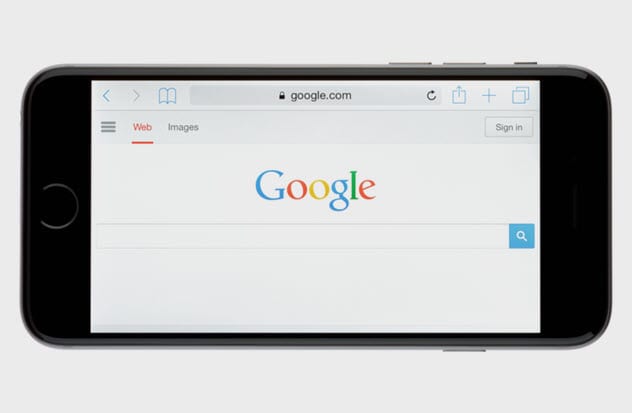 Weird Stuff
Weird Stuff  Weird Stuff
Weird Stuff  Mysteries
Mysteries 10 Tragic Disappearances and Deaths in Joshua Tree National Park
 History
History 10 Ways Childhood Really Sucked in the Old West
 Music
Music 10 Name Origins of Famous Bands from the 1990s
 Religion
Religion 10 Biggest Turnarounds by the Catholic Church
 Weird Stuff
Weird Stuff 10 Unbelievable Times Laws Had Unintended Consequences
 Humans
Humans Ten Historic Women Who Deserve Way More Credit Than They Got
 Movies and TV
Movies and TV 10 Films That Spawned Major Lawsuits
 History
History Ten Times Towns Were Wiped Off the Face of the Earth
 Creepy
Creepy 10 of the Most Disturbingly Haunted Public Houses in the UK
 Weird Stuff
Weird Stuff 10 Niche Subcultures That Are More Popular Than You Might Think
 Mysteries
Mysteries 10 Tragic Disappearances and Deaths in Joshua Tree National Park
 History
History 10 Ways Childhood Really Sucked in the Old West
Who's Behind Listverse?

Jamie Frater
Head Editor
Jamie founded Listverse due to an insatiable desire to share fascinating, obscure, and bizarre facts. He has been a guest speaker on numerous national radio and television stations and is a five time published author.
More About Us Music
Music 10 Name Origins of Famous Bands from the 1990s
 Religion
Religion 10 Biggest Turnarounds by the Catholic Church
 Weird Stuff
Weird Stuff 10 Unbelievable Times Laws Had Unintended Consequences
 Humans
Humans Ten Historic Women Who Deserve Way More Credit Than They Got
 Movies and TV
Movies and TV 10 Films That Spawned Major Lawsuits
 History
History Ten Times Towns Were Wiped Off the Face of the Earth
 Creepy
Creepy 10 of the Most Disturbingly Haunted Public Houses in the UK
10 Ways Your Smartphone Is Ruining Your Life
The smartphone. Everyone has one these days. Most can’t live without these devices. Too bad that we all seem to love them a little bit too much. As we’ve discussed previously, it’s almost like we’re living in the middle of a smartphone zombie plague.
If it was an option and we didn’t discard our phones every other year, we might just marry them. Why is it that we all use them so much, yet are so oblivious to the harm they can cause in our lives?
10 When’s The Last Time You Had A Good Night’s Sleep?

How many times have you gone to bed, only to grab your phone and start checking the news, emails, or social media? Or maybe you want to take one last hit of that addictive game you found the other day?
All those apps are stealing sleep from us. When we go to bed, our phones should as well. But that never happens. As we lie there, we hear the sweet siren call of that little unassuming device. Before we know it, our smartphones are back in control and entertaining us with information.
That’s not all a smartphone does, though. No, it needs more than just information. It needs a way to influence us and push back the tiredness and the night. By shining just a little blue light from its screen, it can suppress melatonin and stimulate our brains. Now we don’t feel tired anymore and can pay more attention to our phones.[1]
With all that additional focus, we can really get into that game and get some adrenaline flowing through our systems. Or we can read through those emails and feel the stress from our colleagues telling us just what new nightmares are headed our way at work tomorrow.
Even when we’re done with our phones, all that adrenaline or stress makes our minds too busy to think about sleep. So we lie in bed bored. Eventually, the boredom is too much so we go back to our smartphones. Before long, it’s time to get up and start another day.
9 Loved Ones Don’t Want To Compete For Our Attention

It’s known as phubbing. Focusing on our smartphones instead of engaging romantically with our loved ones is a big problem. Our smartphones were supposed to bring people together and make the world more connected.
But sometimes, it may bring the wrong people together at the wrong time. While we are busy connecting to coworkers, friends on the other side of the world, or that unknown opponent we are currently crushing, we are distant from the people in the same room with us.[2]
When our loved ones want to connect with us but can’t pull us away from our phones, they’re not happy. If we cannot give the people in our relationships the time and attention they deserve, they are rightfully discontented. Everyone’s relationship satisfaction suffers, and our loved ones will often feel jealous of our smartphones.
If so, our relationships will not be strong. Furthermore, if we can’t pry ourselves away from our phones long enough to notice and fix these problems, how can our human relationships survive? Before we know it, our relationships with our smartphones will be the only meaningful ones we have left.
8 We Can’t Actually Talk To Someone These Days

Long ago, people would interact with each other through face-to-face communication. With the intimacy and bonds produced by that type of social contact, people were able to connect with each other and build strong relationships.
Over time, technology has become a middleman in our conversations, whether through emails, text messages, self-checkout machines, or social media. In so many situations, people don’t directly communicate with each other anymore.
The use of smartphones has been linked to loneliness and shyness in individuals. It’s tough when you are lonely and crave interactions with others, yet you are too shy to actually go out and make those contacts. A study of 414 university students in China showed that the more lonely and shy a person was, the more likely he was to be addicted to his smartphone.[3]
7 The Joneses Aren’t Just The People On Our Street Anymore

Ever been on social media? Ever seen all the beautiful, picture-perfect moments that people post? All the places they visit and cool toys that they buy?
There’s an old saying about the need to keep up with the Joneses—traditionally those in our neighborhoods whom we use as a benchmark for the social class we want to maintain.
The Joneses have a shiny, new luxury car? What will people think about my 10-year-old sedan with a bit of rust creeping up the door? They are having an elaborate party for their child complete with bouncy castle? How do I make sure that my kid doesn’t see me as a failure at his next party if I can’t afford that?
Unfortunately, smartphones and the Internet have greatly expanded our neighborhoods. Instead of just looking at our neighbors every time we leave or come home, our smartphones are letting us peer into the lives of hundreds of “friends” all around the world.
Every time we unlock our phones, we are greeted with new posts showing all the amazing things happening to people around the world. Then we look up and see that our reality doesn’t match what’s on the phone. Unfortunately, this leads to debt, stress, and depression when we believe that we can’t keep up with everyone else.[4]
6 FOMO

Along with keeping up with the Joneses is FOMO (“fear of missing out”). This is when we see people doing or getting something new or exciting. It electrifies us, and we want to get in there with everyone. There’s a fear that if we don’t do it now, the opportunity will be gone.
This concern can lead us to make impulse purchases and accept debt just so we are included in the experience of having this shiny new thing. These days, digital technology through smartphones constantly shows us shiny new objects that we can be a part of. The people and companies making these things are mastering how to foster the feeling of FOMO and make their products or services viral.
All of this can lead to reckless spending on unnecessary things. Then we feel depressed when we see the next shiny thing but realize we can no longer borrow enough money to grab it.[5]
5 It’s Becoming The Most Expensive Member Of Our Household

Remember the days when you’d walk into a cell phone store, sign up for basic talk and text service, and get a free phone? Those days seem long gone. Now it’s all about talking us into the latest gadget that we can’t live without and that we’ll be upgrading in a year.
Smartphones cost us so much money. On average, a smartphone in North America is $567. Just for the phone. Don’t forget that we need a nice case to protect the phone, insurance if the case fails us, chargers everywhere, and paid apps to make those phones even more useful.
Phones increase in price at a rate of about 12 percent a year. In 2008, the iPhone sold for $499 and, in late 2018, the XS Max sold for $1,099. If prices continue to trend in that direction, we could be looking at spending over $5,000 for an iPhone 20 years from now.[6]
Now let’s talk service. That basic talk and text package we used to enjoy years ago just won’t cut it now. Now we need unlimited data, too. All those apps we buy are data hungry. We generally spend around $80 a month for that.
4 Do We Even Remember Facts Anymore?

How many times has this happened to you: You’re with a group of people, and someone asks a question. No one knows the answer, so everyone whips out their smartphones to see who can find the answer first. Someone yells it out, gets the kudos for the best Google skills of the moment, and everyone moves on. Within minutes, everyone is on a different topic and is completely forgetting the answer to the earlier question.
In the past, getting answers was work. We needed to find and schedule time with an expert, go to the library and read a book, or experiment and figure it out for ourselves. All this work left a lasting impression on our minds and made the answer hard to forget. These days, information is so easily obtained that finding it is no longer an adventure.[7]
Where we used to rely on ourselves and those with whom we have relationships to remember things, we now have our smartphones with Internet access to handle it for us.
What happens, though, when we are separated from our smartphones and they are not there to assist us when we need the information?
3 Can We Read A Map Or Drive Anywhere From Memory?

When some of us need to travel to a place we’ve never been or somewhere we don’t go often, our first step is to pull out our smartphones to get turn-by-turn directions. Long gone are the days of building a mental map from past experience and learning to find places through our own sense of direction. Even longer gone are the days of opening a paper map to draw a route to where we want to go.
Learning new routes and how to navigate on our own builds spatial maps in our brains. We understand the distances between places, where they are in relation to each other, and how to move from one place to another. We gain the ability to look at the world around us and actively plan our movements.
Unfortunately, with turn-by-turn directions always available through our smartphones, these spatial maps are often not well-built. We are focused on our phones instead of interpreting the world around us. Since we know that the directions will always be available to us in the future, we are far less likely to remember them on our own.[8]
2 We Really Can Be Afraid Of Losing Access To Our Phones

Nomophobia is the fear of losing access to our smartphones whether through dead batteries, loss of signal, or loss of the entire phone itself. Research revealed four main sources that feed this fear: inability to communicate, lost connectedness, loss of access to information, and lost convenience.
Basically, we’re addicted. Our phones provide us with access to loved ones and answers to all our questions. These devices also remove so many roadblocks any time we want. Losing those capabilities leads to fears. We are all on our own.
It’s becoming serious. Thirty-eight percent of surveyed American teenagers said they didn’t think they could live one day without their smartphones. Seventy-one percent said the same about a week.[9]
1 We Just Don’t Have Time To Get Anything Done Anymore

Do you ever feel like you just don’t have time anymore? Like the world has become so busy that it’s hard to keep up? How much do you use your smartphone?
We are all fairly attached to our smartphones. Those little devices are good at snatching our attention, making sure they are never far from us, and keeping us coming back often for any updates they might offer.
Perhaps our struggles with and management of time all start with our smartphones. Constantly getting all those little updates from our phones and then waiting and hoping for the next update releases a bit of dopamine in our brains. This makes us happy and excited and also keeps us coming back for more.[10]
Looking for those hits of dopamine, we end up spending more time than we realize on our phones when we could be taking care of all those other things we never seem to have time for.
I’m a Computer Engineer who is fascinated by the world around us.
Read more cool stories about smartphones on 10 Signs Of The Smartphone Zombie Plague and 10 Ways Scientists Are Using Your Smartphone To Save The World.








